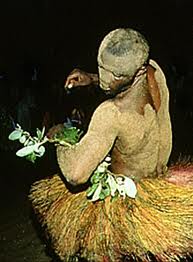
While I was away someone invented the afronometer and put
mostly men in charge of it. And there is one peculiar thing about the afronometer: when it comes to making progress towards treating women with dignity and allowing them to exercise rights that were previously denied, it is rarely ever on the women’s side.
I have met with the afronometer when someone is arguing about the un-'Africanness' of gay rights, which is another debate altogether. Most times the afronometer is thrust forcefully upon me during discourse about why some things about the way women are treated need to change. As soon as I open my mouth to make a case for progress, someone somewhere, usually a man, blurts out: But that is so un-African!
I have met with the afronometer when someone is arguing about the un-'Africanness' of gay rights, which is another debate altogether. Most times the afronometer is thrust forcefully upon me during discourse about why some things about the way women are treated need to change. As soon as I open my mouth to make a case for progress, someone somewhere, usually a man, blurts out: But that is so un-African!
 |
| Source: Africanholocaust.com |
So I was not surprised to read an article on the Marriage
Bill where a lawyer from the East Africa Law Society, no less, was quoted as having said that
lawyers needed to advise Members of Parliament against the Bill because it is, wait for it,
un-African. Never mind that he did not explain what was so un-African about it,
or perhaps the reporter was only too happy to have gotten the perfect quote out
of him, that he did not bother to put him to task to explain what about the Bill fails to measure up to the African standard. Other leaders, among them Kakamega senator Bonny Khalwale called on parliament to africanise the Bill.
What is African? How African are the clothes that you wear,
the products that you use, your education, your religion, your gods and so forth? If you were
to examine every little thing about your life and culture, how much African would your
afronometer find in it, or is 'Africanness' the convenient card we pull out to
stand in the way of change that our minds have refused to process? A lot has
changed since the origin of the African man.
We have adopted some cultures and
assimilated them into ours, discarded some and retained others, and by so
doing we have shown that culture is not a
static phenomenon. It is dynamic -- constantly changing with the times. We pick some, drop some and get on our way. That is why our views on marriage and the place of men and
women in it are being reviewed to be in sync with the realities of this time.
In any case, I would say that the Marriage Bill has recognised what some men would call African culture
fully, by officially embracing polygamy. But the clause that would have men’s
boxers in a twist is probably the part where they have to get the consent of their
first and other wives before bringing in new wives, and other such ‘un-African’
measures, whereas before they could do whatever they pleased without seeking
anyone’s consent. The only men who should be running scared about the Marriage Bill are those whose treat women without decency, respect and dignity. Those who have been treating women with dignity, know that the Bill is just a physical reminder of what they have known to be right all along.
 |
| Source: Superstock.com |
And for those whose argument against the Bill is its 'Africanness' or lack of it: to say that something is un-African is a fallacy. If anyone
has a problem with a law, a custom or anything else, he should state why that
thing is a problem and argue out his case instead of hiding behind 'Africanness'
only when it suits him.
Read a copy of the Marriage Bill, 2013 here, so that you can make an informed and objective contribution to the Legal and Justice Affairs parliamentary committee as it holds it's public hearings on the Bill around the country, this August: http://goo.gl/E6WKGZ

Completely agree, I wish humanity as a whole could just go back to the basics, which starts with viewing each other as human beings only. The rest then becomes irrelevant.
ReplyDelete